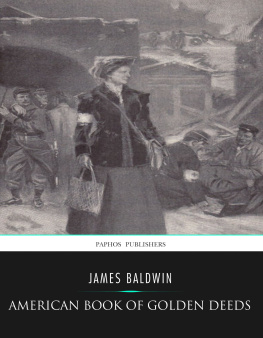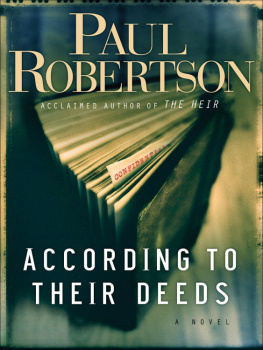Anonymous
Golden Deeds
Stories from History
Published by Good Press, 2019
EAN 4057664612267
List of Stories Table of Contents
|
How Horatius Kept the Bridge
Table of Contents
More than two thousand years ago Rome was ruled over by some kings called the Tarquins. As they were wicked men, the Roman people rose up against them, and drove them out of the city. The banished kings then went to Tuscany, where Lars Porsena took up their cause, and gathering an army together, went to help them force an entrance into Rome again.

HORATIUS AT THE BRIDGE
The city could only be entered by crossing the river Tiber, and there was but one wooden bridge over which the army could pass. Then the leader of the Romans, who was called the Consul, cried out to his followers to destroy the bridge.
"But," he added sadly, "I fear they will be upon us before we have time to hew it down."
At this a Roman called Horatius came forward and offered to stand at the farther end of the bridge, to keep the Tuscans at bay while it was being destroyed.
"The pathway is so narrow," said he, "that if two others will help me, we can stop the whole army from advancing. So who will keep the bridge with me?"
Two other brave Romans, called Spurius Lartius and Titus Herminius, at once answered the call of their comrade, and these three gallant men went to defend the passage, while the rest hastened to destroy the bridge.
When the Tuscans saw the three men standing ready to meet the whole army, they laughed aloud in scorn. But their laughter was soon changed to wrath and despair, as one after the other they and their chiefs were quickly laid low at the feet of the dauntless Romans.
Meanwhile the supports of the bridge were destroyed. The Consul shouted to the three heroes to hasten across before the ruin fell into the water beneath. Lartius and Herminius just succeeded in getting safely to the farther bank, but Horatius remained facing the foe until the last beam fell. Then with a cry he leapt into the foaming stream, and although badly wounded and heavy with his armour, he managed to rejoin his comrades on dry land, to the joy of the whole city. During his gallant fight, a dart from an enemy's arrow had put out one eye, and because of this he was given the surname of Cocles, which means one-eyed.
William Tell
Table of Contents

TELL'S SON AND THE APPLE
When the Emperor Albert ruled over Germany, he wished to govern the people of Switzerland in such a way that their independent spirit would be broken. To bring about this end he appointed a governor, who treated the Swiss unjustly and cruelly.
The name of this man was Gessler, and in order to test the people's obedience, he placed his hat upon a pole in the market square of one of the principal towns, and commanded that all who passed it should bow down before it in token of respect. A certain brave Swiss, named William Tell, having refused to obey such an absurd order, was at once arrested and taken before Gessler. The tyrant, who knew him to be a clever archer, said that his life would be spared only on the condition that he should with an arrow hit an apple placed upon the head of his only son. Tell's eye was true, so he consented to the horrible proposal.
An apple having been placed upon the head of his little son, he took his bow and quiver, and prepared to take aim. A moment later the apple, split in two halves, fell to the ground.
Gessler, who was enraged at Tell's success, noticed that he carried another arrow under his cloak.
"What have you a second arrow for?" he demanded.
"If I had killed my boy," replied the bold Swiss, "the second arrow was for you."
The angry governor had him thrown into prison, but Tell escaped, and revenged himself by killing the tyrant.
Catherine Douglas
Table of Contents

FOR THE KING!
When King James came to the throne of Scotland, the whole country was in a state of rebellion.
The King tried to restore order, but the wicked nobles hated him, and plotted together to take his life.
It was Christmas, and King James, with his Queen Joan and a party of faithful friends, was celebrating the season at an old monastery in Perth. The day had passed merrily, and the royal couple prepared to retire.
Suddenly the clang of arms was heard. The ladies rushed to secure the door of the room, but alas! the bolts and bars had gone, and only the empty staples remained. Meanwhile King James seized the tongs, and tearing up a board in the floor, let himself down into a vault below. But before there was time to replace the board, the murderers came rushing along. Then Catherine Douglas, one of the Queen's ladies, flew to the door and thrust her arm through the empty staples, thus gaining time to allow her sovereign to escape. The brave arm was but a frail bar, and was soon broken, and the traitors burst into the room, to find no sign of King James.
Unfortunately the King was unable to get out of the vault. The ladies then made ropes of the sheets, and tried to pull him up, but the noise was heard by the ruffians. They again rushed into the room and the unfortunate monarch was most cruelly murdered.
Although Catherine's brave deed was not rewarded by the salvation of her King's life, yet it was an act of self-sacrifice which places her among the ranks of true heroines.
Casabianca
Table of Contents
The Battle of the Nile was a great battle fought at sea between the British and French in the year 1798. The famous admiral, Lord Nelson, was in command of the British fleet, and he won a most glorious victory in which only four French ships escaped.

CASABIANCA ON THE BURNING SHIP
Towards the close of the battle the French Admiral's flagship, L'Orient, caught fire, and blazed up with terrible brightness. Lord Nelson immediately gave orders that the British boats should be put off to save as many as possible of the poor sailors on the burning vessel.
When the boats reached her side, most of the French officers accepted the offer of safety and sprang into them. Standing upon L'Orient's deck was the little ten-year-old son of the Captain, named Casabianca, who was the favourite of everyone on board, and as he made no attempt to move, the British sailors shouted to him to come with them.



 HORATIUS AT THE BRIDGE
HORATIUS AT THE BRIDGE TELL'S SON AND THE APPLE
TELL'S SON AND THE APPLE FOR THE KING!
FOR THE KING! CASABIANCA ON THE BURNING SHIP
CASABIANCA ON THE BURNING SHIP
















